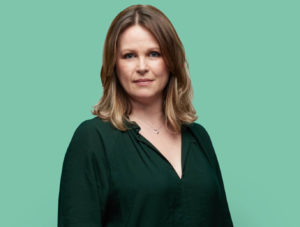1. Accept that if you’re going to innovate, you’re going to make mistakes
You mustn’t be scared to go where people haven’t been before, but in doing so you need to accept that some mistakes are inevitable. The question is not whether can you avoid making mistakes, but rather how quickly can correct and learn from them. Running a start-up is about making decisions, learning and evolving. The worst thing you can ever do is procrastinate.
The way I look at it is this – if you make a decision and it’s the wrong one, then the next time you’ve got a better than 50% chance of getting it right, so just get on with it.
“Running a start-up is about making decisions, learning and evolving. The worst thing you can ever do is procrastinate.”
2. Be persistent and work like you’ve never worked before
We’ve knocked on a thousand doors and kissed a thousand frogs to get where we are today. I’m sure there’s someone smarter out there, but I’ll always make sure I’m the hardest working. I never take things for granted and constantly look over my shoulder to ensure I’m running faster than the guy behind.
As the old saying goes: “The harder I work, the luckier I get”. There’s nothing that can’t be overcome with hard work and persistence.
“I’m sure there’s someone smarter out there, but I’ll always make sure I’m the hardest working.”
3. Distinguish your brand from the competition
We operate in a market where customers are tired of being ripped off. They have lost faith in the large financial institutions and are desperate for brands that put them first. This is why we intentionally developed a very untraditional brand identity that made it all about the customer and used playful, friendly imagery.
4. The customer is always right
The customer is always right, even when they’re wrong. It’s a cliche but one you need to live by.
Every decision we make is based on the feedback and behaviour of the customer. One of the biggest challenges we face is catering to such a broad audience, but we know we have to make the experience faultless for everyone. This is why, early on, we conducted tests in which we monitored the experience of customers from 12-year-olds to 70-year-olds. As you’d expect, the young people flew through the process as quickly as they could; all they wanted was instant gratification. Meanwhile, the older people wanted to take their time, read all the information and ensure they understood the terms and conditions.
“The customer is always right, even when they’re wrong.”
We asked both groups how we could improve the experience and, of course, they gave very different answers, but ultimately we have to recognise that they’re both right, and it has to be our on-going mission to reconcile the two in one flawless experience.
5. Realise that product development and marketing are the same thing
We take our brand very seriously but when someone asks me about marketing I always talk about our product because, if we have that right, I know the rest will take care of itself. Far too many businesses concentrate on their communications without first having the best product, which makes no sense to me.
6. Operate a flat hierarchy
It’s one thing believing in your own vision, but it is another entirely to get your team to believe it. I’ve found that the only way to make this happen is to ensure everyone feels they are part of the business rather than just employees.
“It’s one thing believing in your own vision, but it is another entirely to get your team to believe it.”
We work with a very flat hierarchy. Everybody makes the tea and everybody takes responsibility for their area. This doesn’t suit everyone – people from a corporate background would most likely hate it – but it’s the only way to run a start-up, particularly one with such an audacious and disruptive vision.




